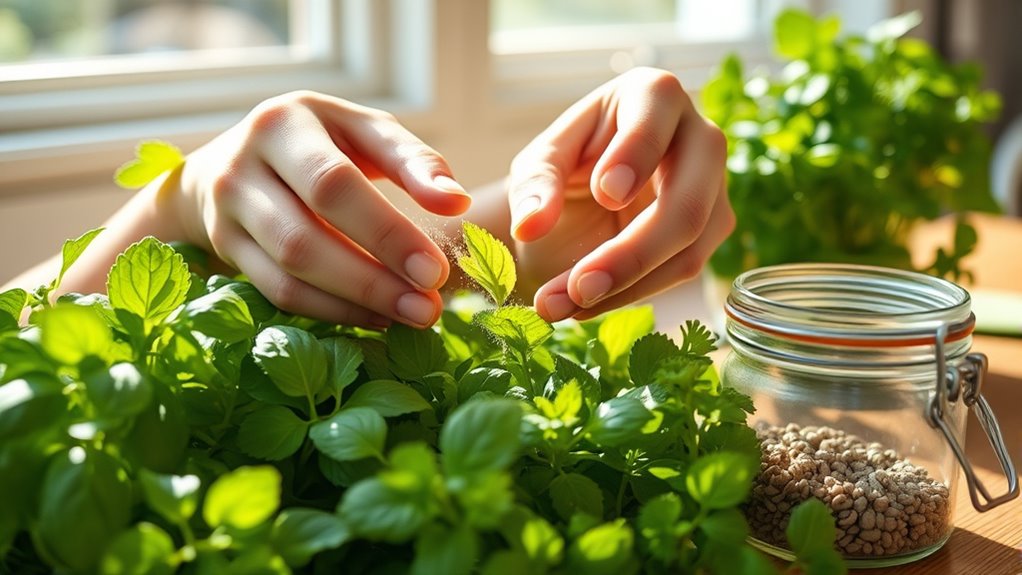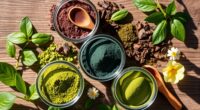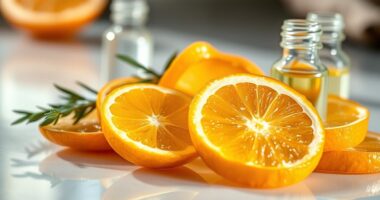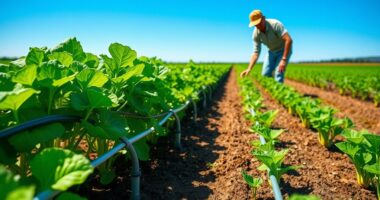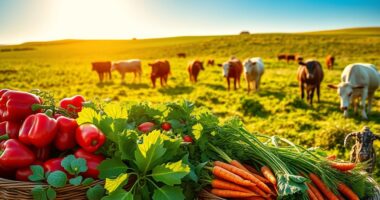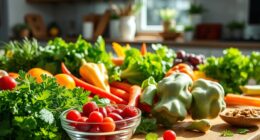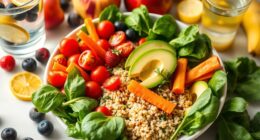To save seeds from grocery herbs like basil and cilantro, start by letting seed heads fully mature on healthy, dry plants and harvest them carefully once dry. Guarantee proper pollination—hand-pollinating or isolating varieties helps maintain quality. After collection, clean and dry the seeds thoroughly, then store them in airtight containers in a cool, dark place. If you want to master the full process, continue exploring detailed tips for successful seed saving.
Key Takeaways
- Select fully mature seeds from dried, healthy herbs like basil and cilantro for better germination.
- Hand-pollinate flowers or isolate plants to preserve desired traits and prevent cross-pollination.
- Carefully harvest seeds once seed heads are dry and fully developed, avoiding damage during collection.
- Dry seeds thoroughly on paper or screens, then store in airtight, labeled containers in a cool, dark place.
- Keep seeds in optimal conditions to maintain viability, ensuring successful planting in future seasons.
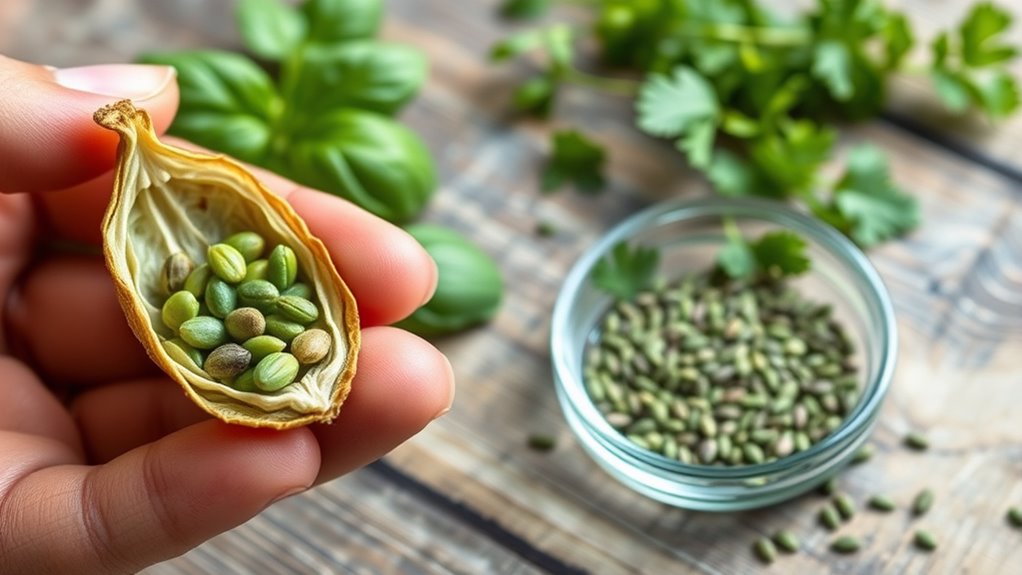
Saving seeds from grocery herbs is a simple way to grow your own plants and save money, even if you’re new to gardening. When you harvest seeds, it’s essential to consider seed viability—the ability of seeds to germinate and grow into healthy plants. Ensuring seed viability starts with selecting mature, fully developed seeds from healthy herbs. For example, with basil or cilantro, wait until the flowers have faded and seed heads have dried out completely before harvesting. This maturity indicates that the seeds are likely to be viable and ready for storage. Properly dried seeds retain their germination potential better and are less susceptible to mold or rot during storage.
Pollination techniques play a vital role in seed production, especially for herbs that are open-pollinated. If you’re saving seeds for future planting, it helps to encourage or control pollination to maintain the desired traits. For instance, if you want true-to-type basil seeds, you may need to hand-pollinate flowers or isolate different varieties to prevent cross-pollination. This is particularly important if you’re growing multiple herb varieties nearby, as cross-pollination can produce unpredictable or hybrid seeds. To maximize seed viability, try to harvest seeds from plants that have been properly pollinated—whether naturally through insects or via manual pollination. Confirming the right pollination techniques not only preserves the quality of your seeds but also helps maintain consistency in your future herb crops.
When harvesting, collect seeds once the seed heads are fully mature and dry. Use clean, sharp scissors or hands to carefully remove seed pods or flowers, avoiding damage that could compromise seed viability. After harvesting, spread the seeds on a paper towel or screen in a warm, dry spot to continue drying for a few days. Proper drying prevents mold and ensures the seeds can be stored long-term. Store your seeds in airtight containers, labeled clearly with the herb name and harvest date, and keep them in a cool, dark place. Proper storage conditions help maintain seed viability over time, giving you a reliable source of seeds for future planting.
Frequently Asked Questions
Can I Harvest Seeds From Hybrid Herbs?
You can harvest seeds from hybrid herbs, but keep in mind that seed purity and hybrid seed viability may be affected. Hybrid plants often produce seeds that don’t breed true, meaning the offspring might not resemble the parent plant. If you want consistent results, it’s better to save seeds from open-pollinated herbs. However, if you’re curious and willing to accept some variation, harvesting hybrid seeds is still an option.
How Long Do Herb Seeds Remain Viable?
Imagine seeds resting, waiting for the perfect moment to sprout. Herb seed viability varies, but most stay viable for 1 to 5 years with proper storage. Keep them cool, dark, and dry to extend their storage duration. Properly stored seeds remain viable longer, ensuring successful germination when you plant again. So, your herb seeds can serve you well, provided you prioritize good storage conditions and regular checks on their viability.
Do I Need to Dry Herbs Before Seed Collection?
You don’t need to dry herbs before seed collection, but herb drying can help you better observe seed maturity. Wait until the seeds are fully developed and firm, indicating seed maturity, before harvesting. Once seeds are mature, you can gently dry the herbs if desired, which makes seed collection easier. Just guarantee you harvest at the right time, when seeds are fully ripened but before they start dispersing naturally.
Can Seed Saving Improve Herb Flavor?
Yes, seed saving can improve your herb flavor over time. When you save seeds properly, you maintain seed viability, which guarantees healthy, vigorous plants with better aroma and taste. Proper seed storage in a cool, dry place helps preserve seed quality, leading to stronger herbs. As your saved seeds grow into new plants, you’ll notice enhanced flavor, creating a more flavorful herb garden and reducing reliance on store-bought varieties.
Are There Any Legal Restrictions on Seed Saving?
Did you know that seed patenting affects around 10% of commercial crop varieties? When you save seeds from grocery herbs, you should consider legal considerations, as some seeds are protected by patents or plant variety protections. Seed patenting restricts saving and sharing, so always check for labels or regulations. Knowing these rules helps you avoid legal trouble while enjoying your homegrown herbs.
Conclusion
Now that you know how to save seeds from your grocery herbs, you’re like a gardener holding a treasure chest. With just a few simple steps, you can turn your kitchen into a seed-saving haven, ensuring your herbs thrive for seasons to come. Think of your saved seeds as tiny promises of future abundance, ready to grow into new plants. Keep experimenting—you’re planting the seeds of a greener, more sustainable future.

